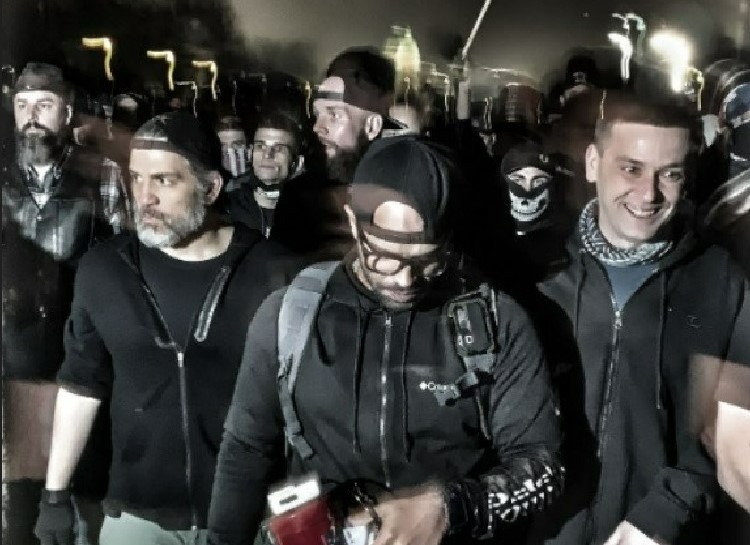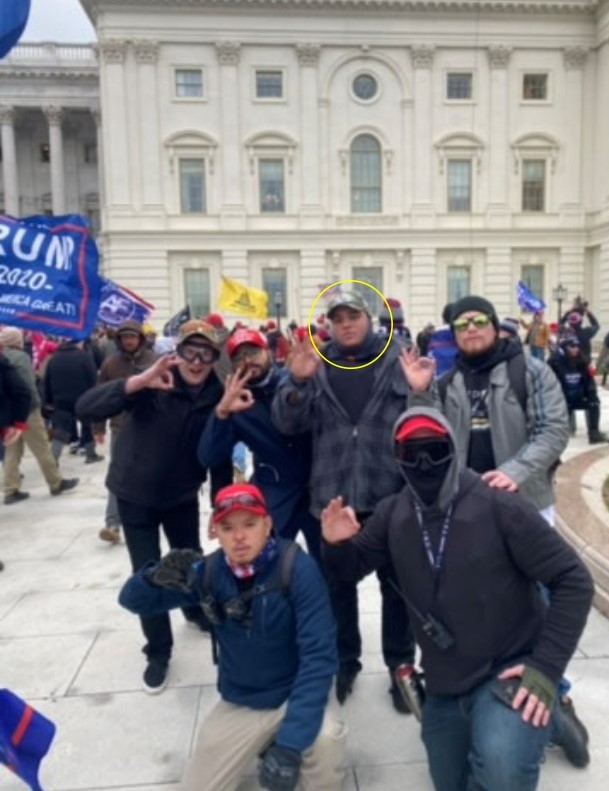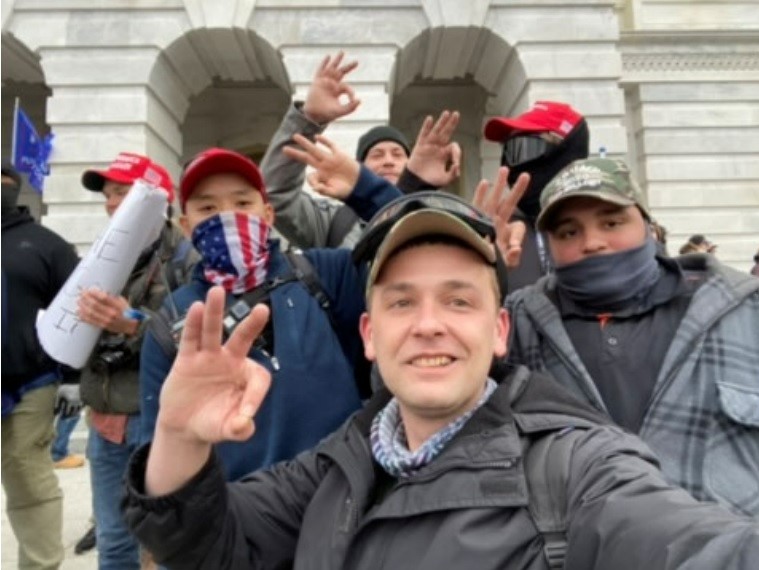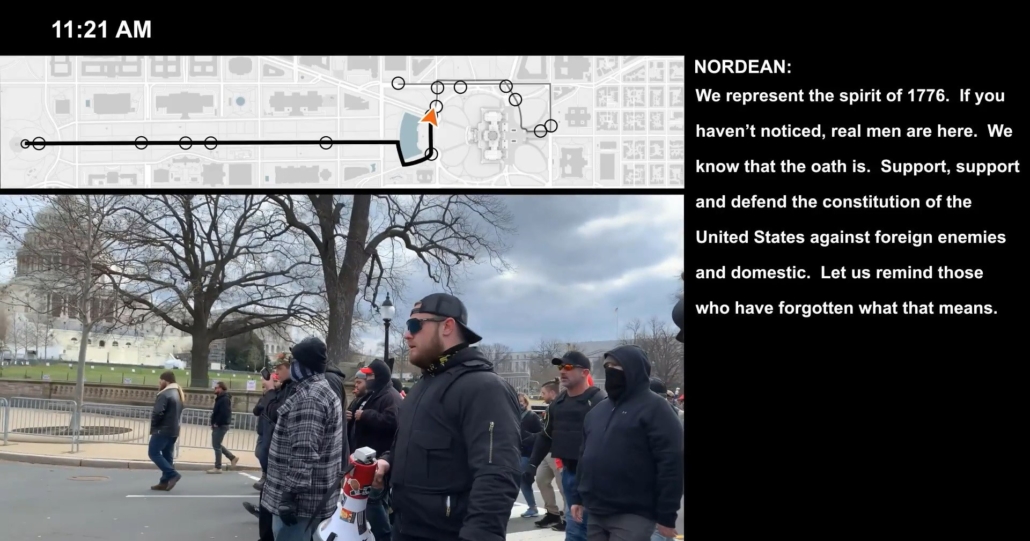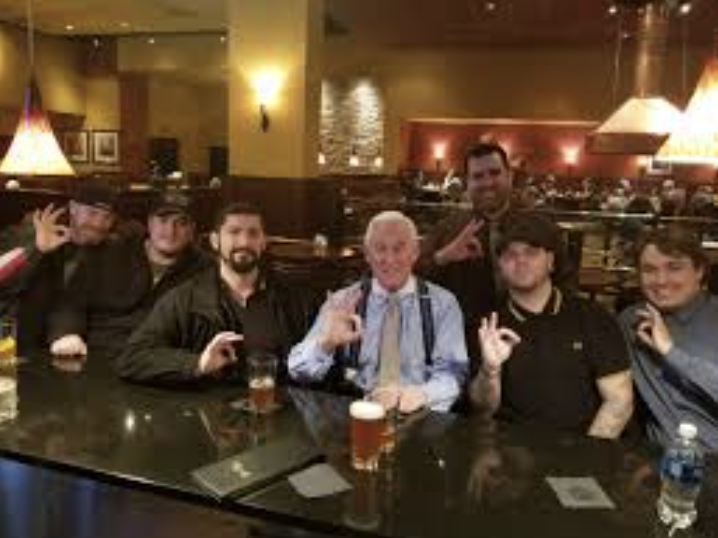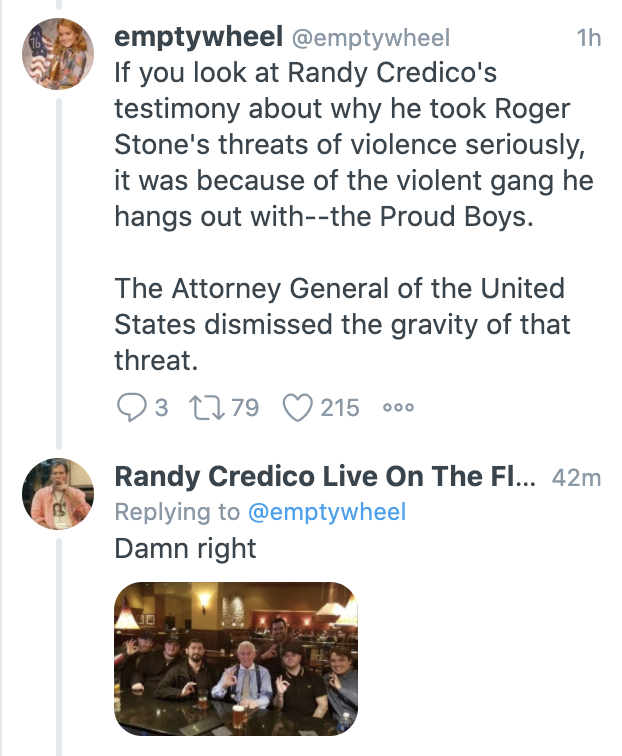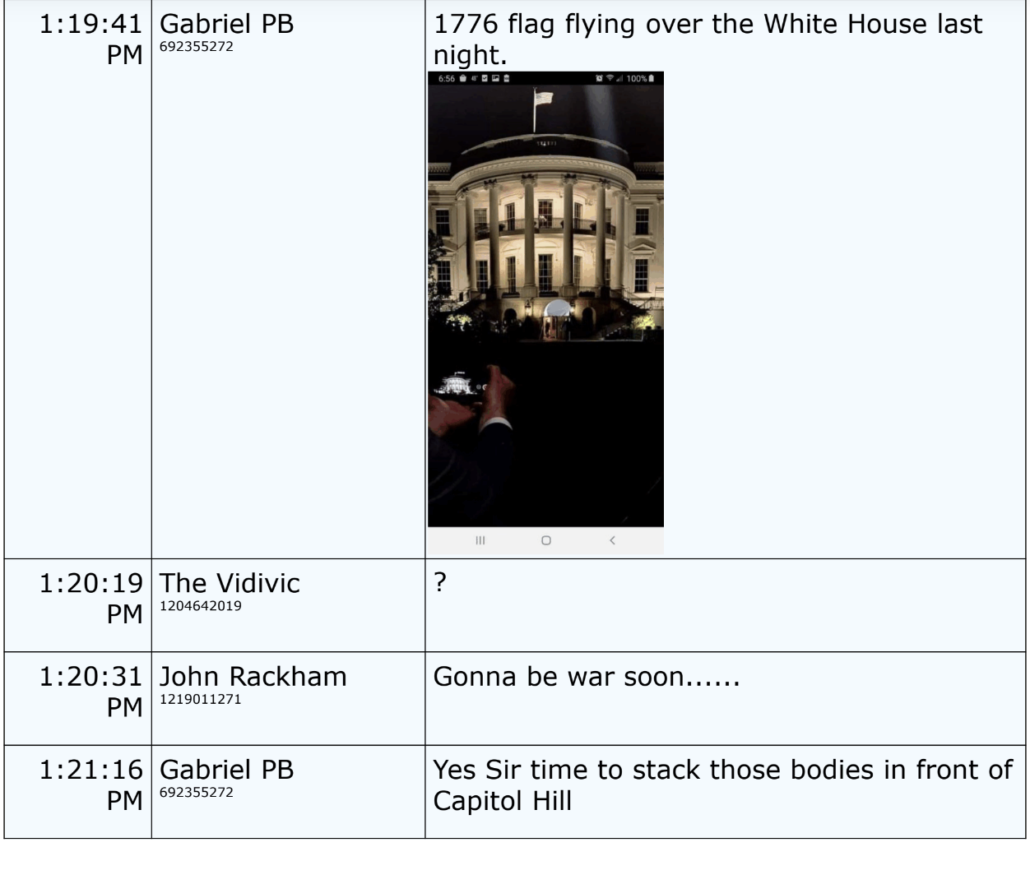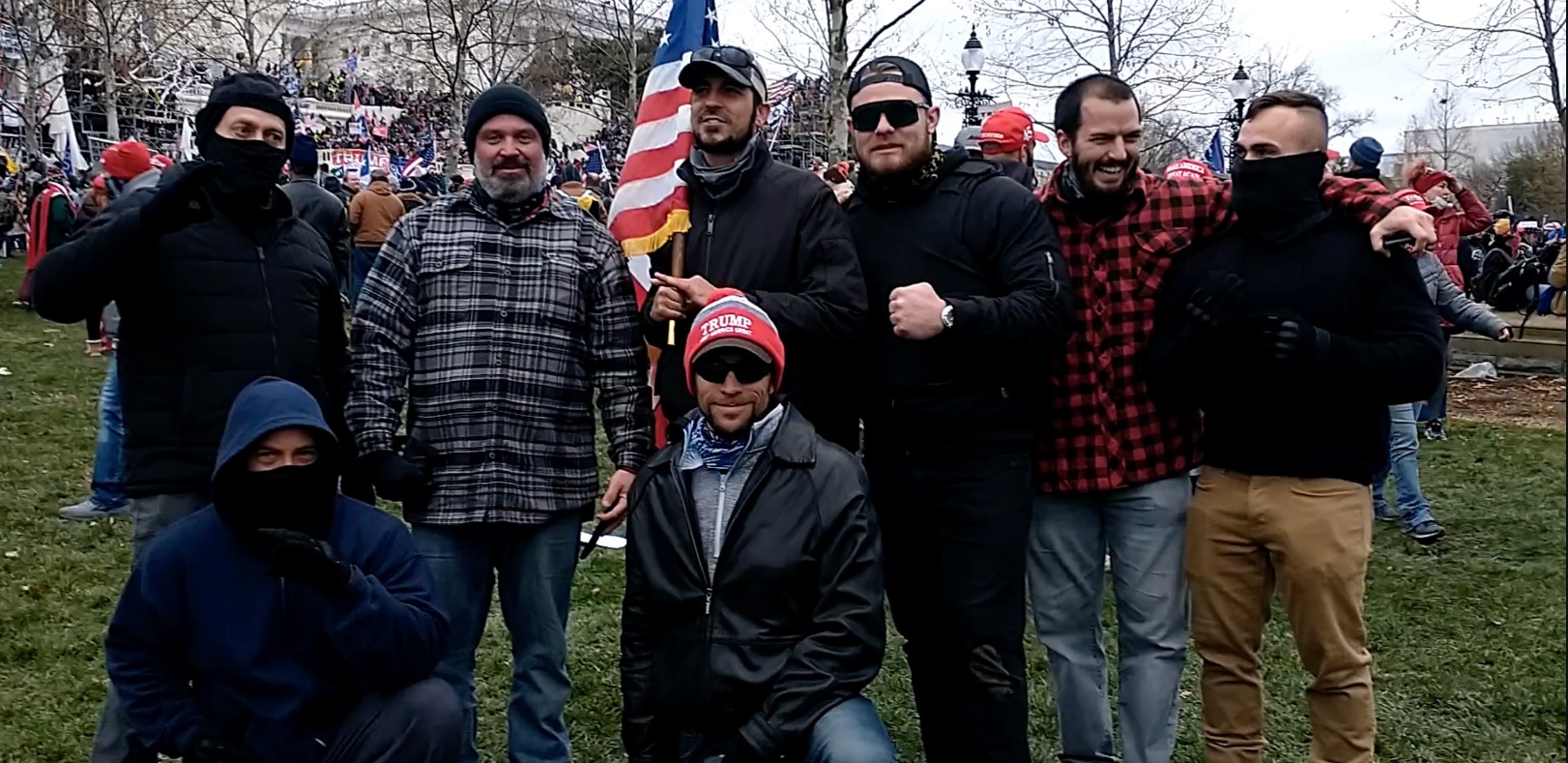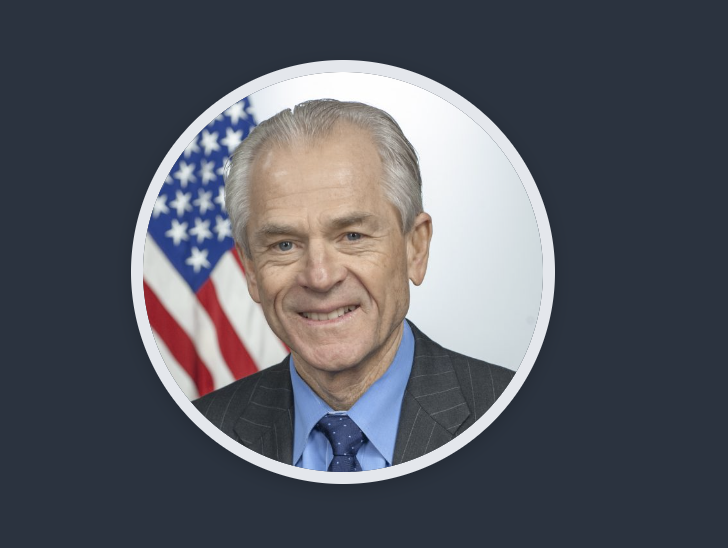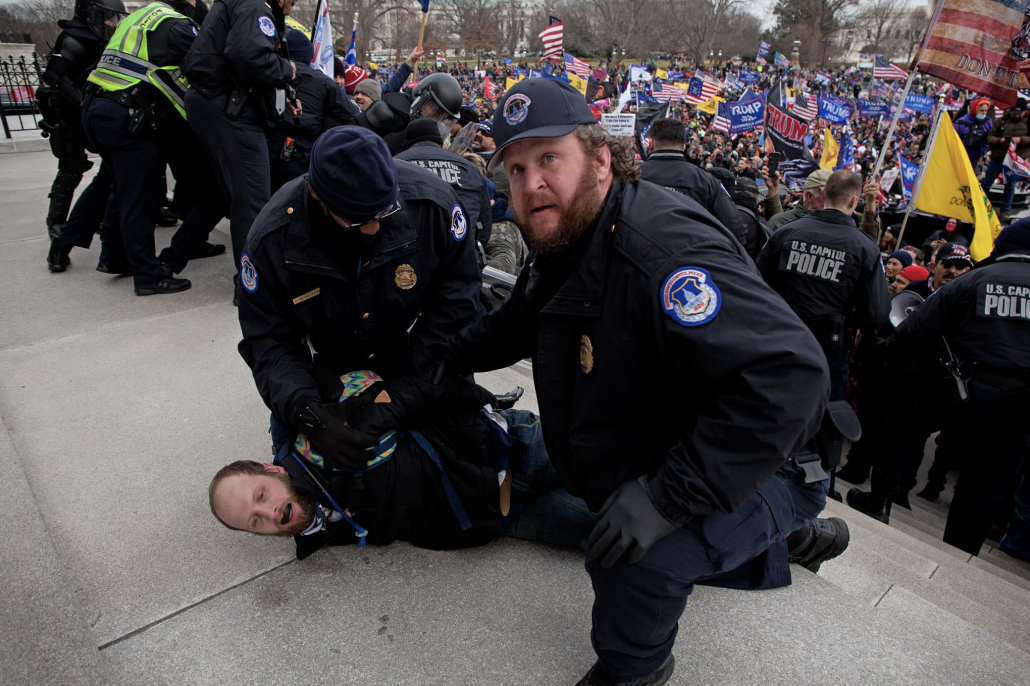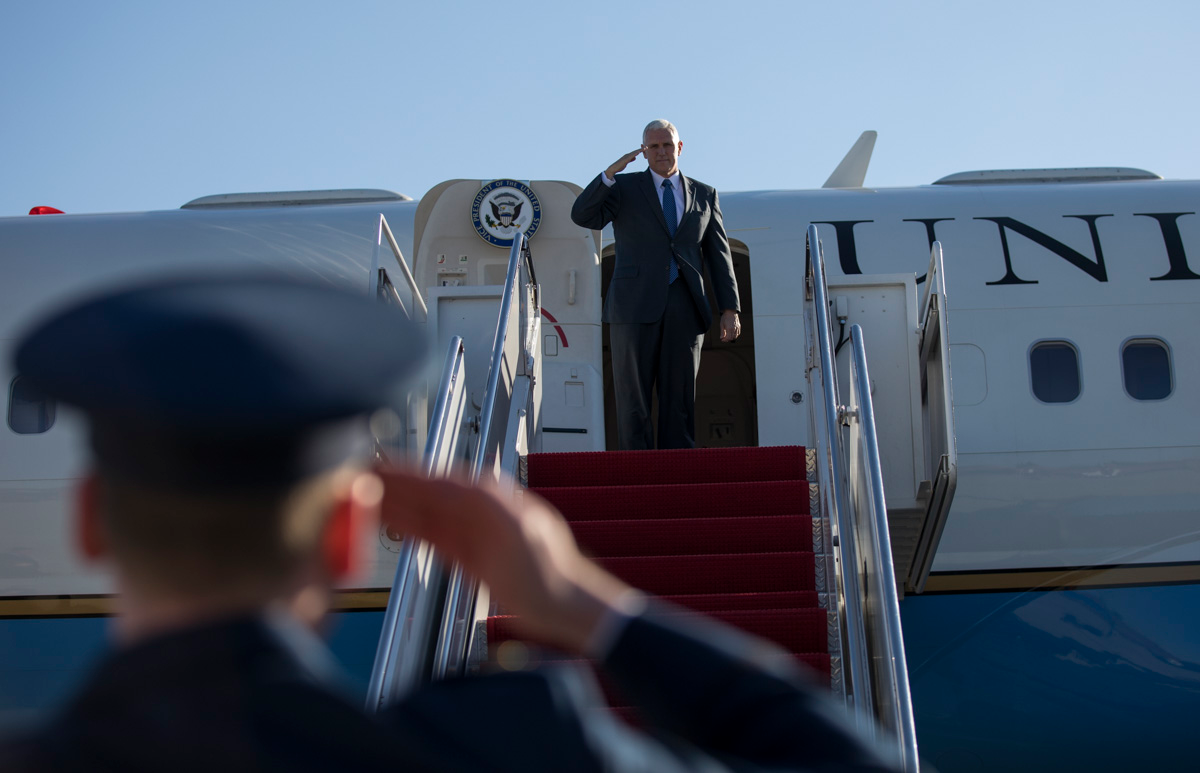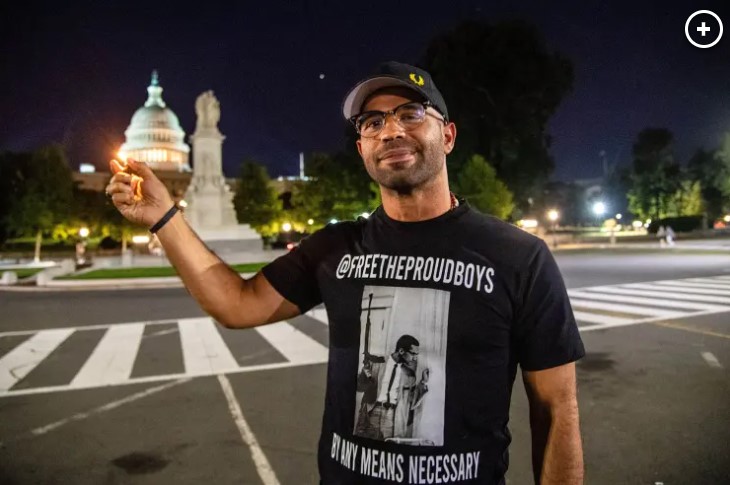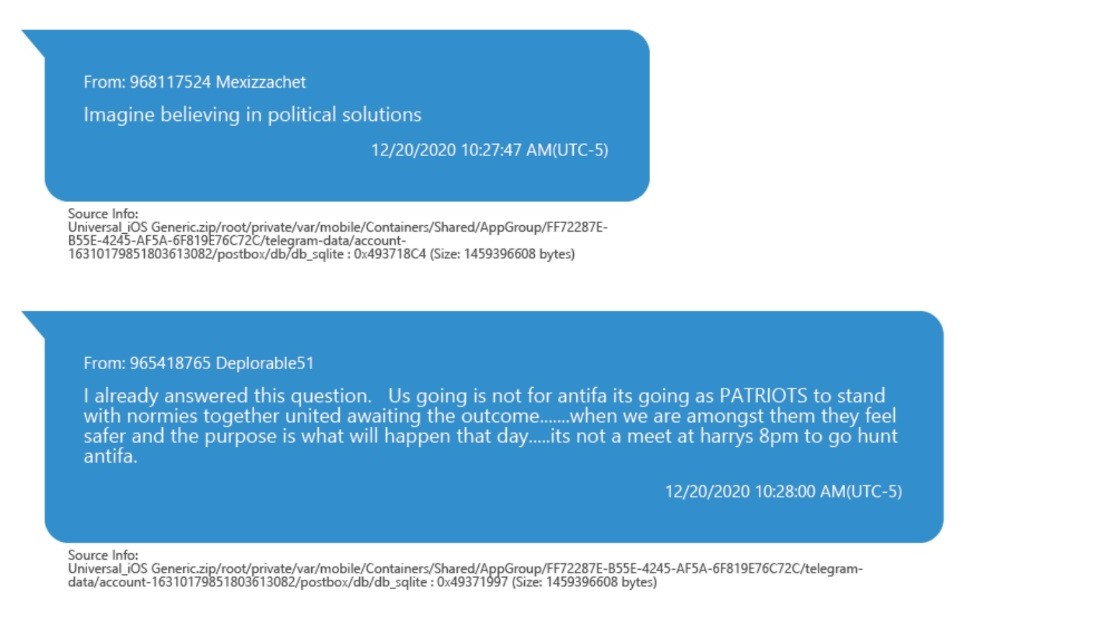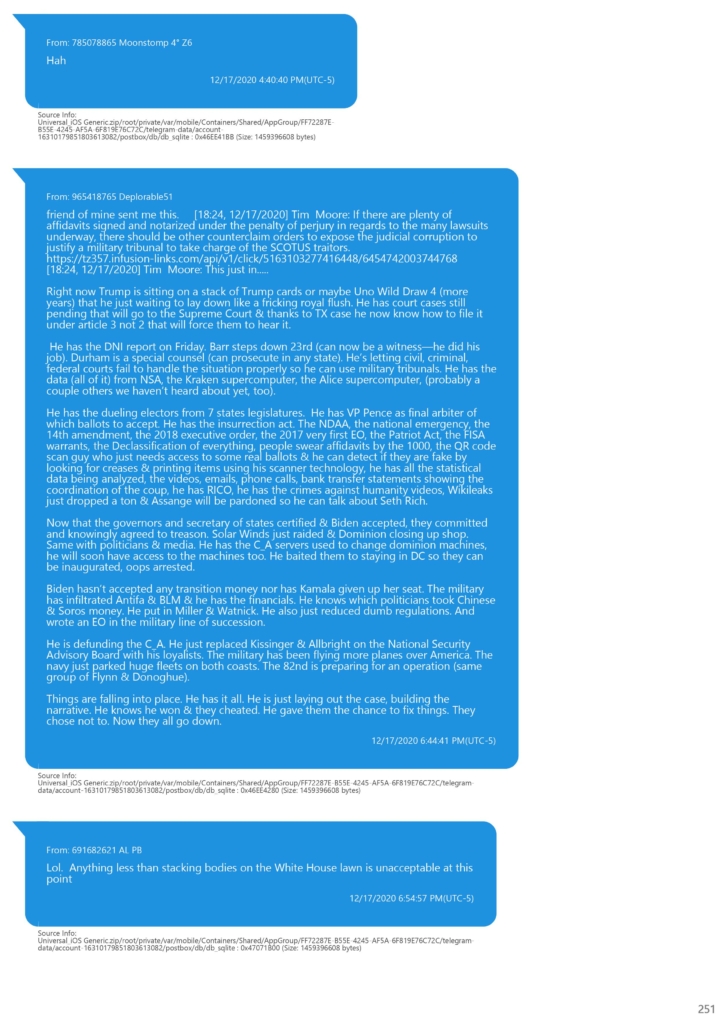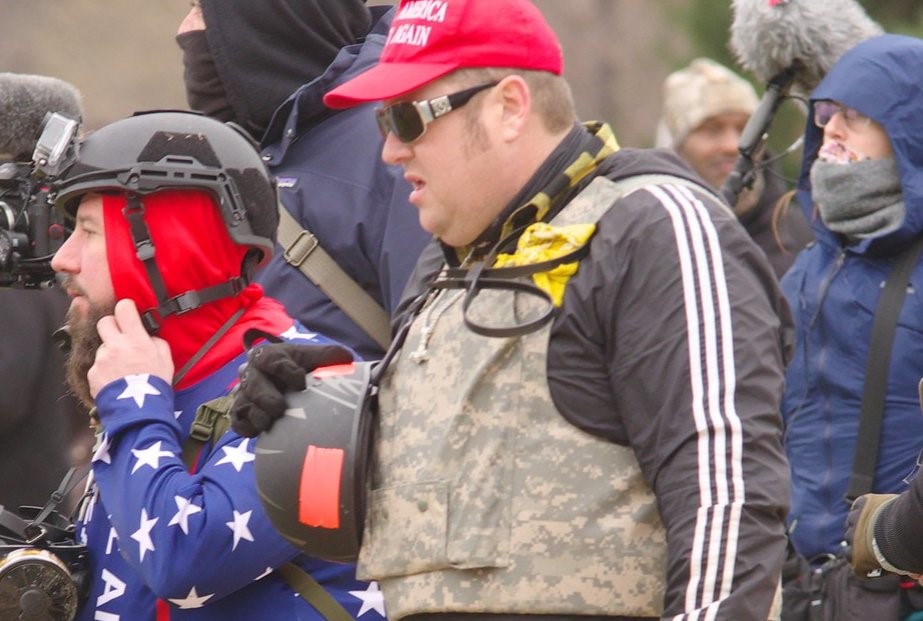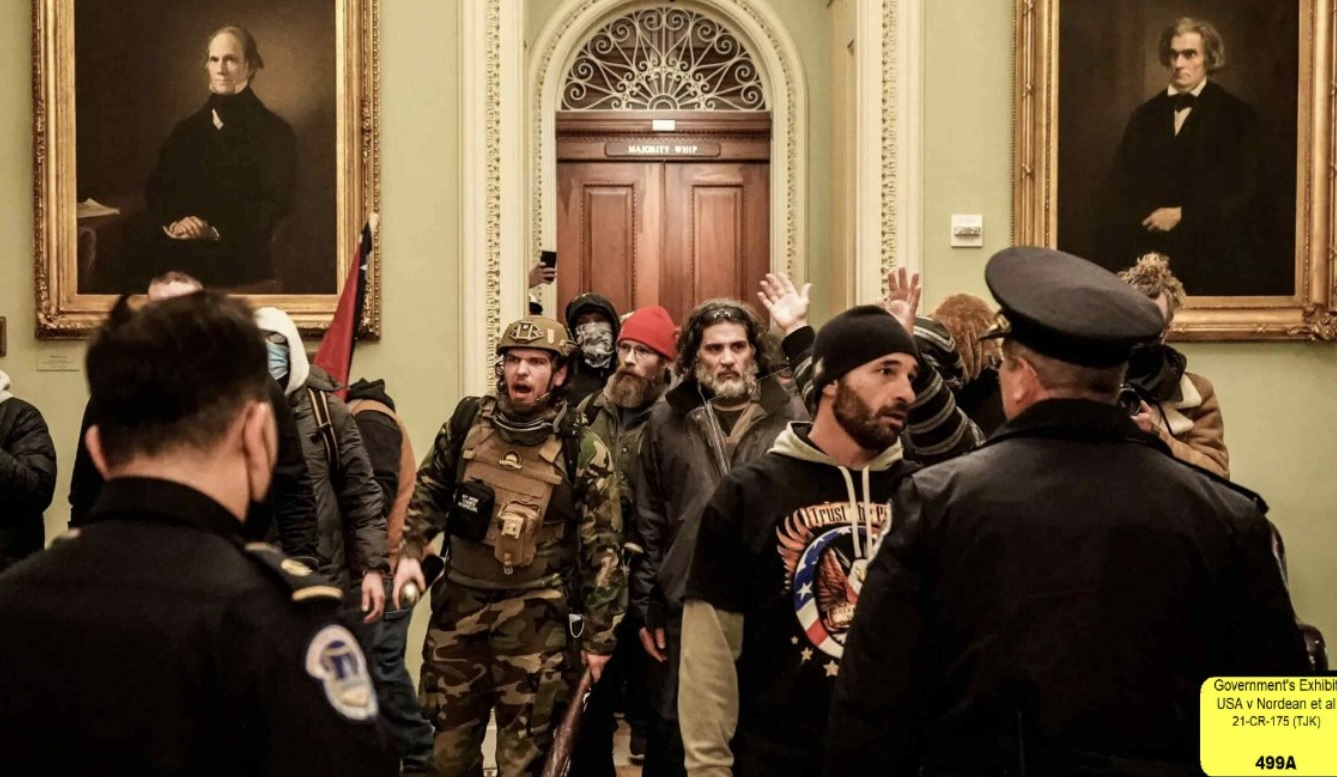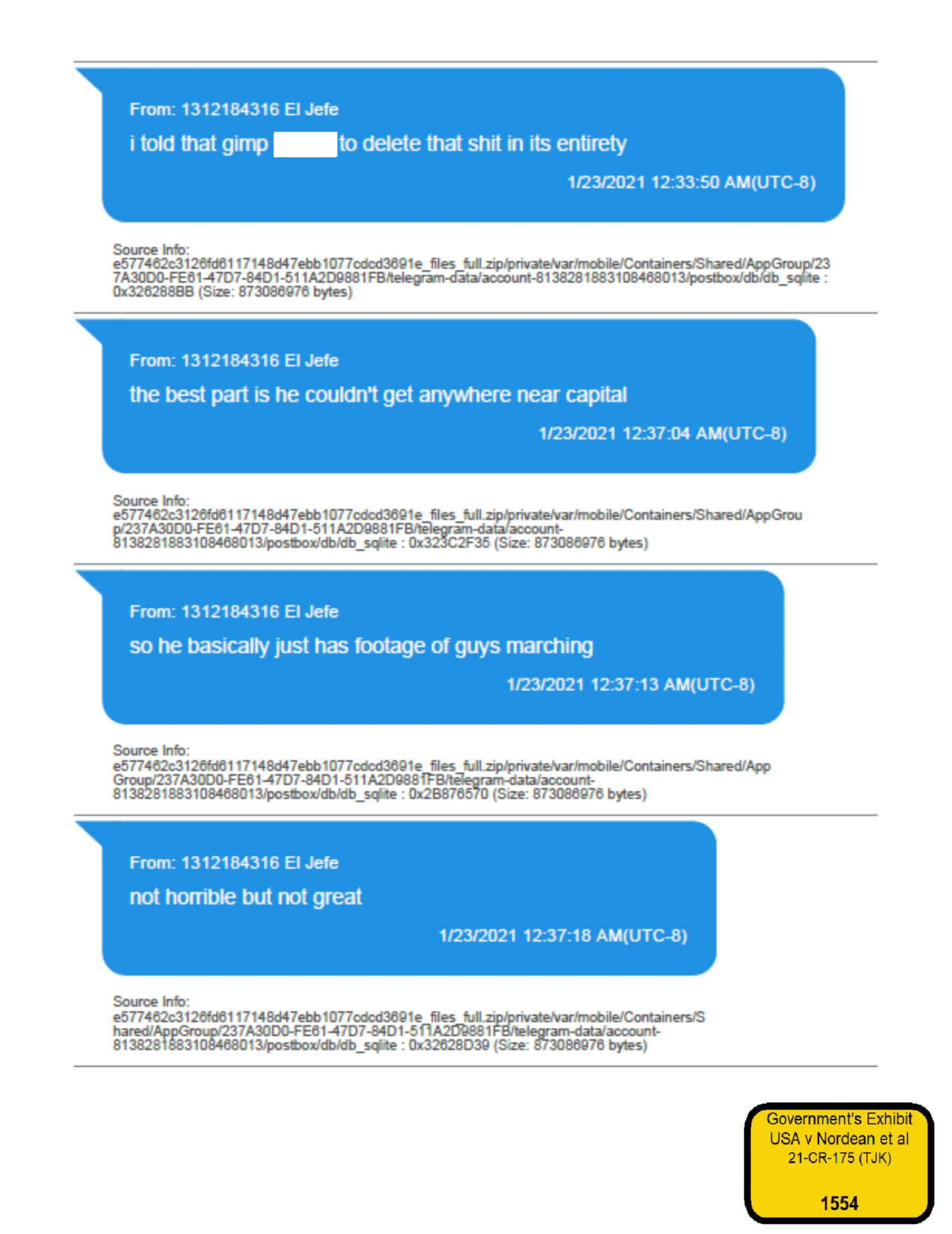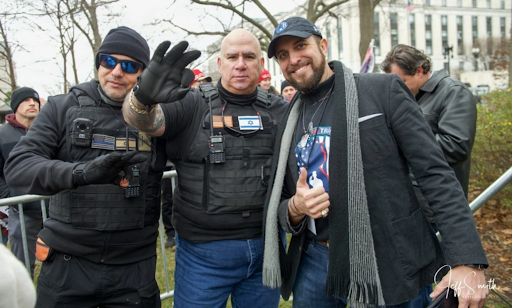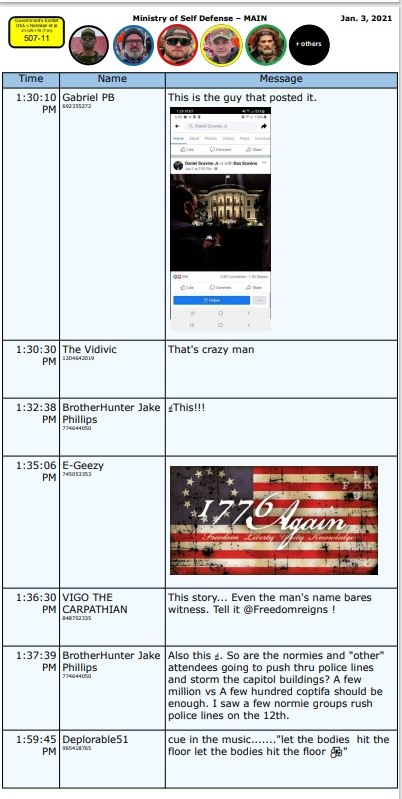Finally: The first Proud Boy on trial for seditious conspiracy testifies
From emptywheel: Thanks to the generosity of emptywheel readers we have funded Brandi’s coverage for the rest of the trial. If you’d like to show your further appreciation for Brandi’s great work, here’s her PayPal tip jar.
It took more than three months but this week at the Proud Boys seditious conspiracy trial, the first defendant to step forward and testify was the group’s Philadelphia chapter leader Zachary Rehl.
Rehl took the stand over two days and emphatically denied that there was a plan to stop Congress from certifying the 2020 election on Jan. 6, an argument that shouldn’t surprise any juror that has patiently heard evidence over these last 53 days.
The violence that consumed the U.S. Capitol was never part of the objective— if there even was an objective Rehl would say, because, after all, there was no plan. He wasn’t in a position to direct what happened, he testified, and at the end of the day, he asked jurors to believe he was just a man who liked to protest and party afterward.
Rehl has sat at the back of U.S. District Judge Timothy Kelly’s courtroom now for months as the evidence in the case against him and his co-defendants Henry “Enrique” Tarrio, Joseph Biggs, Ethan Nordean, and Dominic Pezzola, has stacked up at a punishingly slow pace.
When Rehl finally sat in the witness box, with a U.S. Marshal seated behind him barely visible to the jury, his speech was often muddled, his hands rarely still.
The 37-year-old former U.S. Marine at times seemed overeager to get his side of the story out, occasionally speaking over his attorney, Carmen Hernandez as she conducted her direct examination.
After Donald Trump told them to stand back and stand by at the presidential debates—”let’s be real, the biggest platform in the world mentioned the Proud Boys,” Rehl testified on Tuesday—the influx of new recruits had exploded. This was one of the precursors to Henry Tarrio’s creation of the group’s exclusive Ministry of Self Defense, or MOSD, he said.
At trial, the defense has worked to throw off the allegation that MOSD was a hub for Proud Boy leaders to coordinate a plot for Jan. 6.
Instead, they argue it was a division for chapter leaders to discuss their “marketing” and “operations” for rallies or other events they would attend, and moreover, to establish protocols for self-defense after the stabbing of North Carolina chapter leader Jeremy Bertino on the night of the “Stop the Steal” rally in December 2020. Bertino has since pleaded guilty to seditious conspiracy.
Tarrio, Biggs, and Nordean, Rehl testified, led the MOSD “marketing team.”’ Rehl ran “operations” with fellow Proud Boy John Stewart, also known as Johnny Blackbeard. Stewart has pleaded guilty, Tarrio’s attorney Sabino Jauregui let slip in court in October 2022. The only other member of the operations team was a third man that Rehl said he could not recall the name of in court.
The Seattle Times reported that the third member was Proud Boy Robert Fussell aka Rex Fergus from Washington State. Notably, a web archive shows Fussell’s Parler profile photo was once a selfie with Roger Stone, a key player in Trump’s push to overturn the 2020 election results. There is no public record that Fussell has been charged with any crimes.
It was “clear as day,” Rehl told the jury this week that the Ministry was only about protecting Proud Boys and nothing further. Yet during proceedings this February, prosecutors showed jurors clips from a Dec. 30, 2020 video conference for the Ministry where Rehl, Tarrio, Nordean, Biggs, and other members discussed the 6th.
Conversation did involve concerns over how they would respond to potential threats from “antifa” or leftists at the looming event. But tucked into the roughly 90-minute meeting (which was one of only two pieces of evidence that Joseph Biggs entered before waiving his right to testify; the other was a mostly biographical stipulation heavy on his military service) were several moments where information about the 6th seemed to be gatekept.
In one segment, Tarrio tells someone who asked for details about Jan. 6 that it would be discussed in a separate chat later and on what would amount to a need-to-know basis for people who would “be on the ground.”
Some of the people who would end up on the ground were the men Rehl brought into MOSD himself including Isaiah Giddings, Brian Healion, and Freedom Vy. Rehl told the jury he agreed to bring a “10-man team” to D.C., and that this was an expectation set by Tarrio for other chapter leaders during the Dec. 30 MOSD meeting.
Prosecutors said this was a “fighting force.” Rehl’s attorney has recoiled at the suggestion during trial. Last month before bringing West Virginia Proud Boy Jeff Finley in for testimony on Rehl’s behalf, she argued unsuccessfully that Finley’s charging decision should be entered into evidence to deflect the government’s claims that Rehl brought a “fighting force” into the Capitol.
Since Finley pleaded guilty to a single misdemeanor charge of entering restricted grounds, and Finley and Rehl had spent time together in and out of the Capitol, this, she argued, should go toward supporting Rehl’s claims of his own peaceful and lawful conduct on Jan. 6.
On his own time before jurors, Rehl recounted how he drove to D.C. with Healion, Giddings, and Vy. They shared a room at the upscale Darcy hotel on the 5th, “protested” on the 6th, marched and, yes, he admitted, went inside the Capitol. On the stand, Rehl’s attorney didn’t spend much time at all asking Rehl to explain his time inside Senator Jeff Merkley’s office where Proud Boys and rioters congregated and at least one individual smoked marijuana. After he left the Capitol, he said he got drunk with his friends. And when it was all over on Jan. 7, he returned to Pennsylvania, drove his friends home, and spent the afternoon “hungover,” “stressed” and “hungry” he said.
Rehl’s delivery on this sequence of events sounded confident as he moved through the details rapidly. When they left, the men had purchased beers, a 30-case for each, he said.
But once off the stand, a source reached out to Empty Wheel to “clarify” that record: the beers were purchased on the way to Washington. So, in effect, it was a pre-game instead of a post-game celebration, a detail that in the grand scheme of the charges he faces wouldn’t seem to matter so much. The “clarification” however, did make Rehl’s testimony seem all the more rehearsed.
Though Rehl, whose father was a policeman and his grandfather too before him, said he thought the violence of Jan. 6 was a “disgrace” and he testified that he did not and could not have impeded or assaulted officers nor would he condone those who did, a day after the attack on the Capitol, Rehl seemed nonetheless pleased with the role he ultimately played in the greater events of the day.
“Bad ass pic in DC,” Rehl wrote in a text message sharing this photo on Jan. 7:
His reverential attitude toward law enforcement in court also breaks with what his one-ztime brother in black and yellow, Isaiah Giddings, told authorities about Rehl after Giddings pleaded guilty to disorderly conduct. Rehl, like Tarrio, Nordean, Biggs, and hundreds of other Proud Boys by mid-December 2020, had turned on police, he said.
Text messages and videos in evidence have indicated steady animosity from Proud Boys toward police in the run-up to the 6th. And on that morning, video footage shows Nordean, with Rehl and Biggs just nearby, repeatedly stoking fury and zeroing in on law enforcement and their treatment of the group’s head honcho.
“Enrique shows up and gets detained before he gets to D.C. and he’s charged with two felonies, multiple felonies for what?” Nordean shouted through a megaphone to a group gathered around him on Jan. 6.
Tarrio was arrested in D.C. on Jan. 4 for burning a Black Lives Matter banner that he stole from a historic Black church on Dec. 12. When arrested, he was also charged with possessing two high-capacity firearm magazines. Jurors have seen dozens of text messages where Tarrio’s arrest appeared to throw the defendants and other members, including Rehl, into a tailspin as they worried about whether Tarrio had the wherewithal to delete Proud Boy communications from his phone.
Later, when Proud Boys in a large marching group passed police on the street who were gearing up, one Proud Boy, Chris Worrell, was heard yelling at officers to “pick a side” and to “honor your oath.” Worrell allegedly attacked police at the Capitol with pepper spray. He’s pleaded not guilty and waived his right to a trial by jury.
As for Rehl, he wasn’t seen or heard attempting to dissuade Worrell, if he heard him at all, and he wasn’t seen or heard ever attempting to dissuade any Proud Boys from their ugly and often violent rhetoric in their chats.
When Hernandez asked Rehl about this in court, his tone was particularly pointed and he tapped the desk before him with a single finger to punctuate his words. If he didn’t say anything to someone it didn’t mean anything. He wasn’t there to police the chats, he said.
“I’m my own person,” the Proud Boy chapter president said.
Their members were “grown ass men,” he added.
When Hernandez asked him what that meant, he offered testimony that would seem almost too perfect for prosecutors to pass up once they get Rehl under cross-examination next week.
“It’s someone who takes responsibility for their own actions, conduct, and statements. If a man goes into a chat and says something stupid, that’s on him. Unless a guy is in a chat sitting there and saying he’s going to go attack someone, if he’s got plans—well, it’s just probably bluster anyway.”
Rehl hung a lot of his testimony’s weight on blustering. But prosecutors argue it wasn’t just empty talk but proof of motive and intent.
That would include a Jan. 7 text stream found in the new MOSD channel that was set up after the old MOSD chat was nuked following Tarrio’s arrest.
In a stream of those messages shown to jurors this week, one Proud Boy, “E-Geezy” urged members to “have faith… we did our part yesterday.” Another Proud Boy “Joshua Maxstud” responded but his message is missing, something that digital forensic experts have testified indicates they were deleted.
Rehl replied after the blank text: “I find this hard to believe now. I’m proud as fuck of what we accomplished yesterday. But we need to start planning we are starting planning for a Biden presidency.”
Rehl told jurors when he said he was proud he was referring to the protest on Jan. 6 generally speaking.
“What I saw was huge crowds of people waving flags protesting and I was proud to be part of something like that. Like I said, it was a historical moment,” he said.
And as for his remarks about “planning” for a Biden presidency, Rehl said it was about telling people to “stop with the conspiracies” of a stolen election.
Just a few weeks before, Rehl seemed more than happy to endorse those conspiracies. And to the point of bloodshed.
In a Nov. 16 text message, Tarrio voiced his concerns that if Biden “stole” the election, Proud Boys would be “political prisoners.” Nordean, in a text the next day, said the “Spirit of 1776 has resurfaced… good luck to all the traitors…you’re gonna need it.”
Rehl replied: “Hopefully the firing squads are for the traitors trying to steal this election from the American people.”
Rehl told the jury he never intended to go inside the Capitol on Jan. 6 but when he finally decided on it, he testified that he had no idea anyone was inside but Capitol Police officers. At one point he said he thought lawmakers had left and Pence had been evacuated.
At another point, he told the jury: “Well there was a proceeding going inside, I didn’t want to affect anything going on inside. I wanted the legal process to play… this is the process our country was founded on. That’s what was playing out on Jan. 6 and I had no intention to go into that building if members of Congress were going to be in that building and I didn’t go in there until after I knew they weren’t going to be in there,” he said.
Police officers weren’t barring any door to his entry when he got inside either, he claimed.
“At the time, they seemed welcoming to people coming in at that time [sic],” Rehl said.
The scenes were reminiscent of a crowded “baseball game” or a “concert” with so many people crowded into a single area and heading in a single direction.
He told the jury it was other Trump supporters who were “rowdy” instigators that knocked over barriers and plowed through police lines. It wasn’t him or the Proud Boys.
“I seen some people shaking some gates over there. Honestly, when that was going down, I knew of protests going on at Capitol grounds. I thought people were trying to get there earlier, some of the protests were being advertised to go on at 1 p.m. It was 12:53… when we collided with that crowd of people, that crowd was really rowdy and when they started shaking the gate, I heard it and I went over there to investigate the scene and see what’s going on,” Rehl said. “The people shaking barriers must have been just trying to get to a stage, he said.
“You’re giving me this look,” he then remarked to his attorney, “But it’s the honest God’s truth.”
At 2:49 p.m. on Jan. 6, as some of the worst violence exploded inside the Capitol, records show Rehl sent a text to Proud Boys: “They just broke all the doors and windows open. People pouring in.”
On his first day testifying, Rehl told the jury he didn’t see any violence toward anyone. He told the jury he didn’t see any Proud Boy engaged in any violence.
“I didn’t think anyone had done anything at all,” he said.
That included his co-defendant Dominic Pezzola, the New York Proud Boy and member of the Ministry of Self Defense who was seen in video footage bashing open a window with a police riot shield he allegedly stole from an officer during an intense scuffle. Prosecutors allege Pezzola’s actions allowed rioters to stream inside the Capitol, ultimately setting off the first major breach of the day.
On his second day of testimony, Rehl left Pezzola to swing in the wind.
“He went off on his own,” Rehl said.
Pezzola, also a former Marine, had discredited MOSD with his actions.
This was what MOSD was “supposed to prevent,” he testified.
“I guess it made us all look bad,” he added.
This January, when Proud Boy Matthew Greene testified on behalf of the government, he said he and Pezzola were “openly expecting a civil war” and that this was the commonly held belief among the group.
Rehl wasn’t standing very far from where Pezzola allegedly stole the riot shield from police in a bitter tug-of-war but Rehl testified he couldn’t see anything. Video footage shows Rehl facing in the overall direction of the episode with Pezzola and he can be seen his hands up, gripping a cell phone as he films. Rehl said he couldn’t see anything too far ahead of him in the crowd.
Rehl denied as well that it was his voice captured by his phone in a video he shot where a man’s voice is heard screaming “fuck them, storm the Capitol!” before an initial breach of police barriers around 10:17 a.m.
At trial, his wife Amanda testified that she didn’t recognize the voice as Rehl’s. Through a rushed and rambling explanation in court, Rehl said the voice wasn’t his but was from a man just nearby. Prosecutors have tried to draw comparisons for the jury by sharing that footage and another video where Rehl is heard clearly exclaiming that he thinks he can see Trump’s motorcade in the road before he and other Proud Boys finally make it to the Capitol.
Separately, in yet more footage, Rehl can be seen and heard perfectly clearly urging Proud Boys that members of the press or media should be shooed off as they first gather at the Washington Monument on the morning of the 6th.
He told the jury he didn’t want the press around because he feared being doxxed. Ironically the footage of Rehl saying this is shot by Proud Boy videographer Eddie Block who was live-streaming.
The defense has argued often that a conspiracy wouldn’t be filmed and conspirators wouldn’t ask media of any kind to follow them or document their activities.
Jan. 6 was essentially a “photo op,” Tarrio’s attorney Sabino Jauregui has argued.
Other witnesses for the defense have called it a “meet-and-greet” and that’s what Rehl has chalked it up to as well.
And yet when Block is filming the Proud Boys on multiple occasions on Jan. 6, trying to capture every moment he can while asking for “likes” and “subscribes” on the live stream, he can be heard remarking at various points that he should give Nordean, Biggs, Rehl and others like Charles Donohoe, space or privacy when they would stop along the route to the Capitol and huddle only with each other.
Donohoe has pleaded guilty to conspiracy to obstruct an official proceeding as well as assaulting, resisting, or impeding officers.
Further potentially hampering Rehl’s credibility, text messages extracted from the defendants’ phones show Rehl telling members of MOSD they have to delete their messages person by person after Tarrio was arrested just before the insurrection.
Donohoe, who originally gave the instruction about deleting messages to MOSD members after Tarrio’s arrest, replied to Rehl: “Well at least they won’t get our boots on ground plans because we are one step ahead of them.”
In that same vein, Rehl’s co-defendant Joe Biggs on Jan. 5 told members in the newly stood-up MOSD chat he had just talked to Tarrio and “we just had a meeting woth [sic] a lot of guys. Info should be coming out.”
“We have a plan. I’m with Rufio,” Biggs wrote, using Nordean’s handle in their chat, Rufio Panman.
“What’s the plan so I can pass it to the MOSD guys?” Donohoe asked.
“I gave Enrique a plan. The one I told the guys and he said he has one,” Biggs replied.
Outside of the presence of jurors this week, Rehl’s attorney let her anxiety about the Justice Department’s impending cross air out.
They would “savage” her client once given the chance, she told Judge Kelly.
It was expected that Rehl would finish his testimony early this week and that prosecutors would be crossed by Wednesday with defendant Dominic Pezzola in the wings to testify right afterward. A scheduling issue with a juror abbreviated the week precluding the jury from sitting on Thursday and Friday.
Perhaps milking an opportunity to let jurors sit with her client’s testimony over a long break or perhaps trying to avoid the inevitable cross of her client, Hernandez spent the bulk of her direct examination of Rehl asking questions at a grindingly slow pace on Wednesday afternoon. Oftentimes, she would flip through her notes at the podium as the court sat in silence for a minute or two at a time. For at least a half hour, she went down the list, charge by charge, even breaking the sentences apart to elicit a yes or no answer from Rehl.
“Did you aid and abet anyone with throwing a watter bottle at a law enforcement officer?” Hernandez asked.
“No,” Rehl testified.
“Did you aid anyone with throwing a water bottle at a law enforcement officer?” she asked.
“No,” Rehl testified.
“Did you abet anyone with throwing a water bottle at a law enforcement officer?” she asked.
“No,” Rehl testified.
It went on and on like this.
Jurors in this trial have already been subjected to long and near-daily delays due usually to internecine fights over evidence sparked by the defense (with a lot of the issues already litigated pre-trial). Adding to this, late last month CNN reported that several jurors had been approached by members of the public outside of the courthouse. One juror said she felt she was being followed.
On Thursday, while the jury was out, a hearing that was meant to be sealed from the public and press was not, and in the process, reporters who had gathered in the media room briefly heard proceedings. CNN reported it was during this time that they learned Judge Kelly would deny a motion for mistrial from all of the defendants sparked by the episode with the jury.
The defense suggested since the jurors had talked to each other about the confrontations, they couldn’t be impartial. Kelly disagreed.
Next week, Pezzola is on course to testify.
Though things came yet again to a grinding halt this week, the parties and judge generally seem optimistic that they could finally get into closing arguments within the next week to week and a half. And then it will be left to the jury to deliberate.
CORRECTION: The initial report stated that Finley cooperated with the government. He did not. He had a plea agreement but he was subpoenaed for his appearance by Rehl’s attorney.

